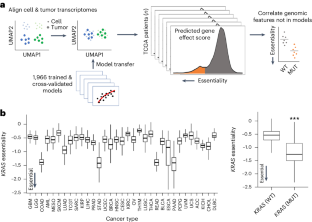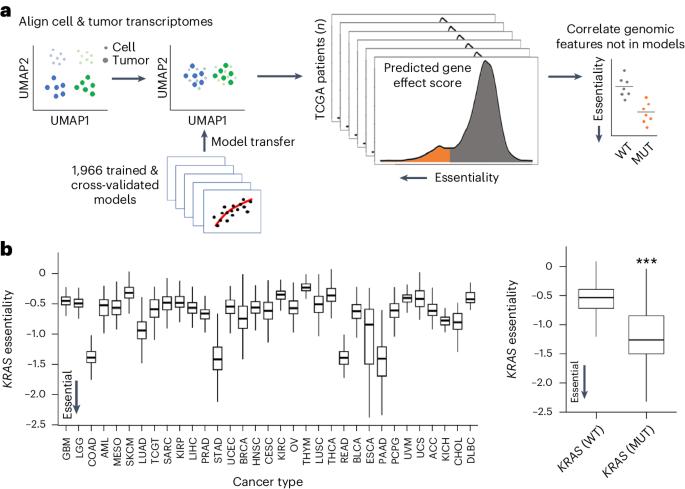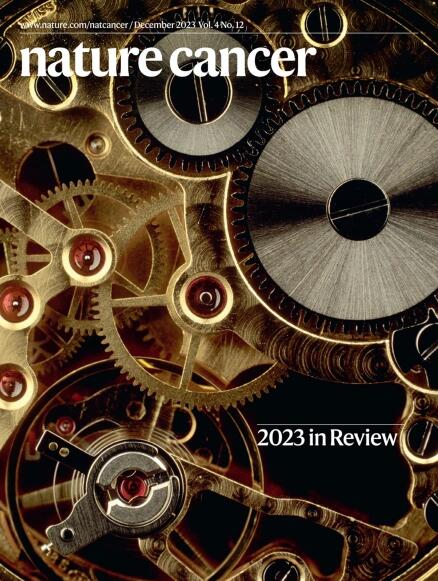利用机器学习翻译肿瘤依赖关系。
IF 23.5
1区 医学
Q1 ONCOLOGY
引用次数: 0
摘要
癌症依赖性图谱加速了重要基因和潜在药物靶点的发现。在这里,我们利用机器学习建立了患者肿瘤和正常组织活检的转化依赖图谱,从而确定了可预测药物反应和患者预后的癌基因和合成致死基因。本文章由计算机程序翻译,如有差异,请以英文原文为准。


Using machine learning to translate tumor dependencies
Cancer dependency maps have accelerated the discovery of essential genes and potential drug targets. Here we used machine learning to build translational dependency maps of patients’ tumors and normal tissue biopsies, which identified oncogenes and synthetic lethalities that are predictive of drug responses and patients’ outcomes.
求助全文
通过发布文献求助,成功后即可免费获取论文全文。
去求助
来源期刊

Nature cancer
Medicine-Oncology
CiteScore
31.10
自引率
1.80%
发文量
129
期刊介绍:
Cancer is a devastating disease responsible for millions of deaths worldwide. However, many of these deaths could be prevented with improved prevention and treatment strategies. To achieve this, it is crucial to focus on accurate diagnosis, effective treatment methods, and understanding the socioeconomic factors that influence cancer rates.
Nature Cancer aims to serve as a unique platform for sharing the latest advancements in cancer research across various scientific fields, encompassing life sciences, physical sciences, applied sciences, and social sciences. The journal is particularly interested in fundamental research that enhances our understanding of tumor development and progression, as well as research that translates this knowledge into clinical applications through innovative diagnostic and therapeutic approaches. Additionally, Nature Cancer welcomes clinical studies that inform cancer diagnosis, treatment, and prevention, along with contributions exploring the societal impact of cancer on a global scale.
In addition to publishing original research, Nature Cancer will feature Comments, Reviews, News & Views, Features, and Correspondence that hold significant value for the diverse field of cancer research.
 求助内容:
求助内容: 应助结果提醒方式:
应助结果提醒方式:


